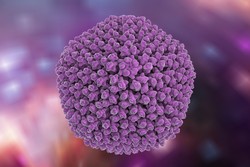Research and clinical application of adenovirus
Adenoviruses are non-enveloped DNA viruses of broad host tropism, responsible for a range of symptoms from mild infections to life-threatening disease. These viruses have also emerged as gene delivery vehicles and cancer therapy tools due to their unique properties. The EU-funded ADVANCE (Adenoviruses as novel clinical treatments) project was designed to offer unique opportunities for young scientists to train in adenovirus research. The initiative brought together internationally renowned centres of research excellence in key aspects of adenovirus biology and their application as vectors in cancer, cardiovascular disease and vaccination. Research efforts were designed to delineate human and nonhuman adenovirus biology as well as tropism and trafficking in host target cells. Using various types of cells (human epithelial cells, blood cells, dendritic cells, macrophages), scientists studied the receptors and entry mechanisms of adenoviruses alongside the paths of viral replication. Considerable effort went towards the development of key technologies for the clinical translation of adenoviruses as oncolytic agents for cancer therapy. In this context, researchers explored genes that facilitate the spread of adenoviruses in tumours and the generation of immune responses against tumour antigens. To use adenoviruses for vaccination, scientists characterised alternative serotypes as vectors and elucidated the pathways of attachment and entry. The downstream fate of adenovirus vectors was also studied, enhancing the understanding of their in vivo properties for future use in animal models and as clinical tools. Furthermore, the utility of adenoviruses in cardiovascular gene therapy was improved while innovative approaches based on adenoviruses were developed for veterinary medicine. Overall, the ADVANCE study successfully offered a deeper understanding of adenovirus diversity, structure and function. Considering the global socioeconomic burden of cancers, infectious diseases and cardiovascular diseases, the findings of the project open new avenues for targeting these diseases and alleviating their symptoms. The successful outcome of the project has laid the foundation for future collaborations on adenovirus-related research.



